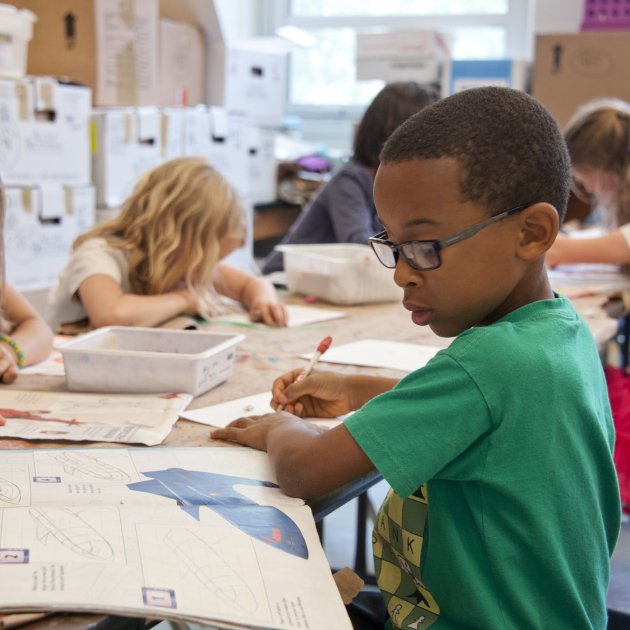The data does nothing but confirm a reality that is already visible - and audible. In the schools of Catalonia, Catalan is spoken less and less in class, during group activities and, of course, among the school children themselves. But what do the statistics say? If, in 2006, 56% of 15 year old students (in the 4th year of ESO secondary education) used Catalan "always or almost always" to ask a question in class, only 39.4% do so now. That is, a very noticeable fall. It is even clearer if we look at the language used during group activities. If we compare the data, in 2006, 67.8% of students used Catalan “always or almost always” in this context, while now, in 2021, only 28.4% use it with the same regularity. A complete change in the dynamic, with 20.7% saying they now use it "rarely". And teachers, what do they do in this context? Well, it seems that if, in 2006, 63.7% addressed their classes in Catalan as a rule, now only 46.8% do so. And 12.3% of teachers say they use the Catalan language "rarely" in this situation.
An action plan on Catalan use
They are percentages which will make many Catalans - and anyone committed to linguistic diversity - raise their hands to their head. And in fact, the Catalan education minister himself, Josep Gonzàlez-Cambray, has stated today that "not enough has been done in recent years" and "the social situation of the Catalan language is worrying".
Precisely for this reason, culture minister Natàlia Garriga along with Gonzàlez-Cambray have presented an action plan to promote the use of Catalan in schools.
As they explained today in a press conference, the plan will consist of an analysis of the reality of each educational centre and implementation of actions and improvement by steering committees. These committees will be made up of teachers from different educational levels, a member of the centre’s management and support from the education department's Language, Interculturality and Social Cohesion team. The intention is that within four years, this plan will be deployed in all school centres in Catalonia.
Plan to promote the use of the Catalan language in schools / Anna Solé Sans
What is already being done?
This school year, however, some actions are already underway. About 200 centres are developing indicators at present, in the first term. During the second term, the intention is to create steering groups and identify elements for improvement. In the third and fourth terms, training sessions will take place.
Other schools will be gradually incorporated during the second, third and fourth year, up to a total of 3,500 public and subsidized private schools. Joining the plan is not optional: all of the school centres in Catalonia will be part of it.
Significant decline
"In the last 15 years there has been a decline in Catalan," said Gonzalez-Cambray with the data in hand. In this context of free fall, the Catalan minister of education states that "it is time to address this situation." Thus, he emphasizes the fact that "until now we have had perceptions, now we are beginning to quantify it".
The intention is for the plan to increase the use of Catalan and facilitate the learning of the Catalan language among all class members and also in families. With regard to this, it is highlighted that as well as the role played by the classroom situation and the teachers' leadership during class, it will be crucial to understand the dynamic in playground spaces, dining rooms and extracurricular activities.
Gonzalez-Cambray stated, in the face of a concerning situation, that "we are taking immediate action." Thus, "Catalan is and will continue to be the vehicular language. It is a language of the present and the future".
Cambray, upset with the courts
During the press conference, the Catalan education minister was asked about Wednesday's announcement by the High Court of Catalonia of a ruling requiring a school in the town of Llagostera to teach 25% of its classes in Castilian. On this, Gonzalez-Cambray declared that the "persecution" is "tiring."
"It's just too much that the courts carry on seeking to impose and decide on educational policies." Since 2005, there have been 81 cases of courts ordering a change in language regimes in schools in response to a family's complaint. "That is, 81 families out of more than 1,600,000 students" made the cases which led the court to impose change on whole classrooms at a time.
An end to masks in the playground?
Regarding the possibility of Catalan schoolchildren being able to go without masks in the playground, the minister confessed that he had found out about it from the media just before the press conference. In this context, he called the health minister, Josep Maria Argimon. A decision will be made in the coming days, but everything suggests that such a change could be imminent.
Main image: Schoolchildren at work in class / Unsplash
